A Q&A with Belgium-based Het Lezerscollectief
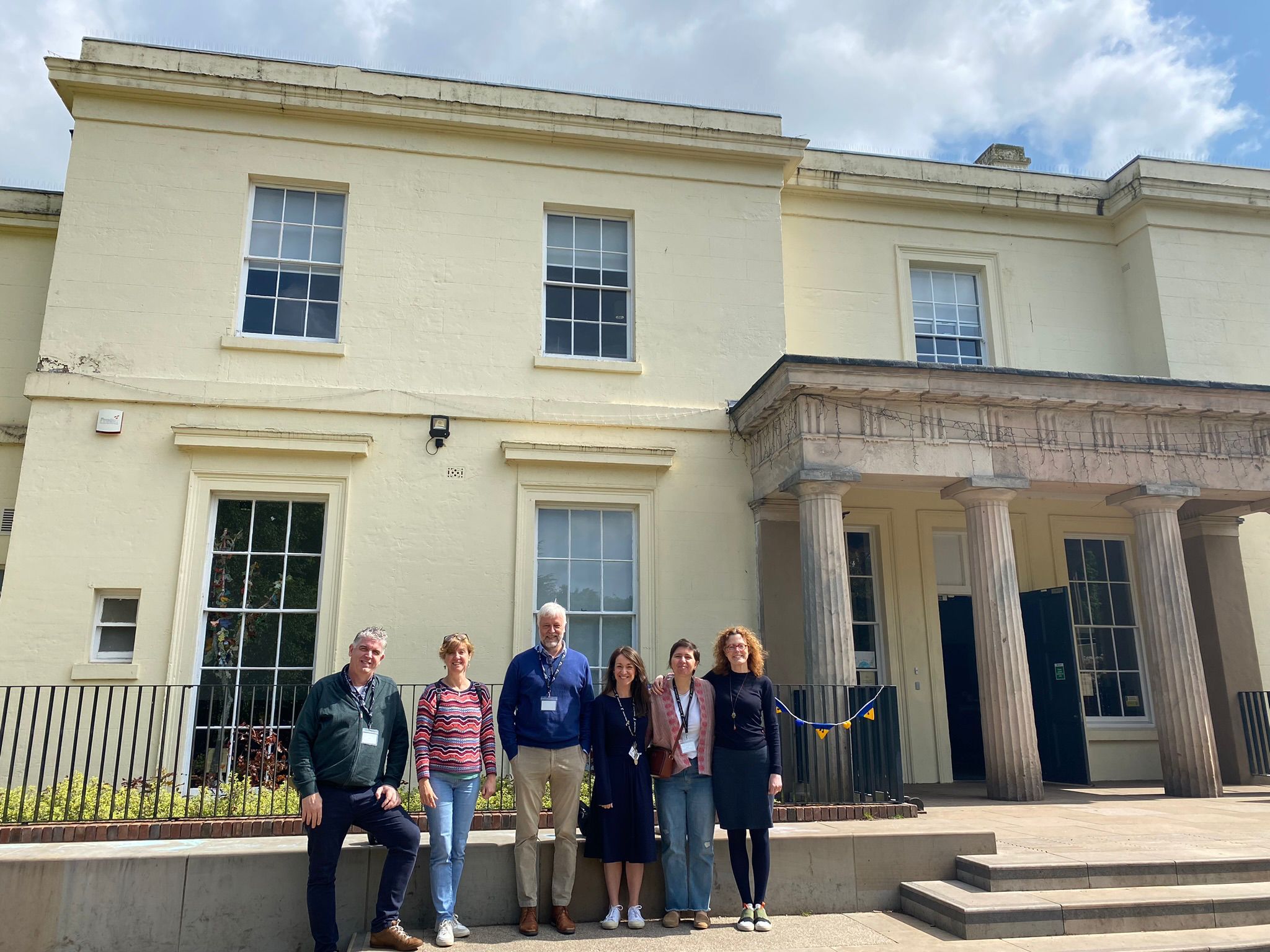
Since 2008, the Shared Reading movement has expanded across the globe as interest in The Reader’s work has grown.
Shared Reading is bringing people together in countries, including Australia, Belgium, Canada, Denmark, Finland, France, Germany, Hong Kong, Mexico, New Zealand, Norway, Republic of Ireland, Spain, Sweden, Switzerland, The Netherlands, USA.
As well as training hundreds of individuals to lead groups, The Reader has also developed strong relationships with networks of organisations that share our values. One such organisation is Belgium’s Het Lezerscollectief which, in 2020, became an official partner.
On a recent trip to Calderstones, Director of Literature, Katie Clark, caught up with Het Lezerscollectief’s co-founder, Dirk Terryn, for an update on the Reading Revolution in the Netherlands ...
Last time we caught up was Gravity in 2022, tell us what’s been happening with Het Lezerscollectief since then?
A lot of our focus has been on reading with people with dementia. We work with the Flanders Centre of Expertise on Dementia and at a local level, we work with care homes and day centres. Shared Reading for dementia isn’t just about doing something to pass the time, it’s part of a bigger conversation about what quality of care can look like. It’s not just a nice to have, it’s a need to have.
We’re planning a symposium in 2024 where we’ll be sharing our ambition to raise awareness of Shared Reading across every care home and day care centre in the Netherlands over the next 2-4 years. We’re also hoping to find more ways to involve carers and open up groups to family members too. It’s a big ambition!
Where might we find the other groups you have running in Belgium and the Netherlands?
We also read in schools, where we help to encourage a love of reading for pleasure, as well as in prisons, hospitals, mental health services and in children’s social care.
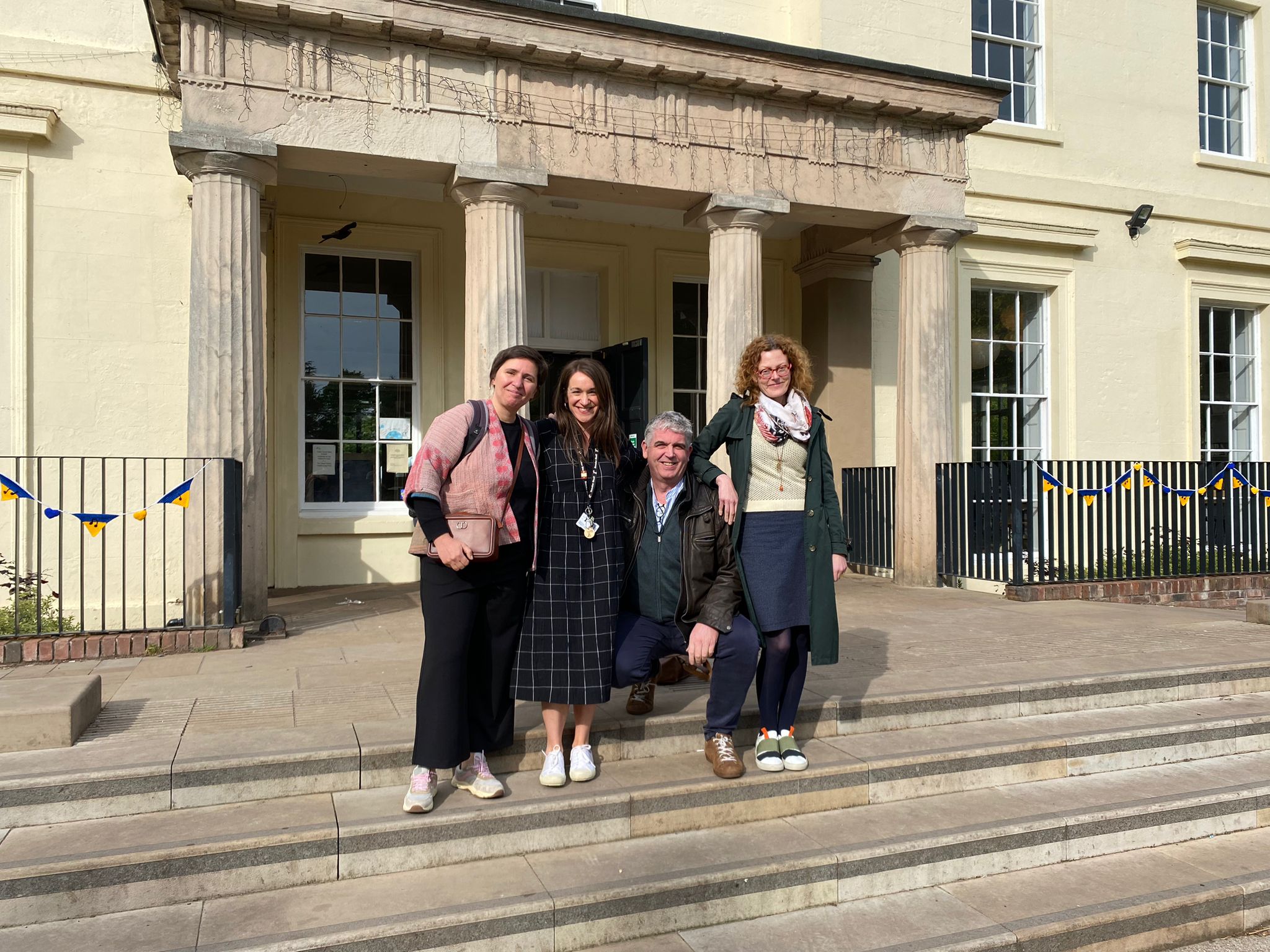
Shared Reading is a lifeline for people in tough times and as many people here in the UK are facing growing pressures because of the cost of living crisis, mental health it really feels like it’s needed now more than any other time. Is the situation similar in Belgium and the Netherlands?
Yes. Shared Reading is definitely needed now more than ever – if people are suffering from grief, for example, why should the psychiatrist’s couch be the only place where they can talk about that?
After the pandemic, it’s important for people to learn how to connect again, to come together, to feel safe – not only mentally but physically too. More importantly though, we need to have spaces where we can talk about the deeper things of life. Someone in my group said ‘this isn’t about therapy, this is about having a conversation that matters’. This is why all of us – no matter who we are – need Shared Reading in our lives.
Previously, you were working on a Dutch-language book and a film to promote Shared Reading – what has the response been to these projects?
The documentary was really helpful in bringing Shared Reading to life. Together with the book, we have something tangible to show people and say ‘this is why this matters’.
Film has the power to really touch people. The documentary included one volunteer talking about a woman he read with who was nearing end of life. She told doctors that she only wanted to see her partner and her reading partner because she didn’t have much time left – and that was only after 4 or 5 sessions of reading together. When other people hear stories like this then it suddenly helps them to understand the power of Shared Reading a little bit more.
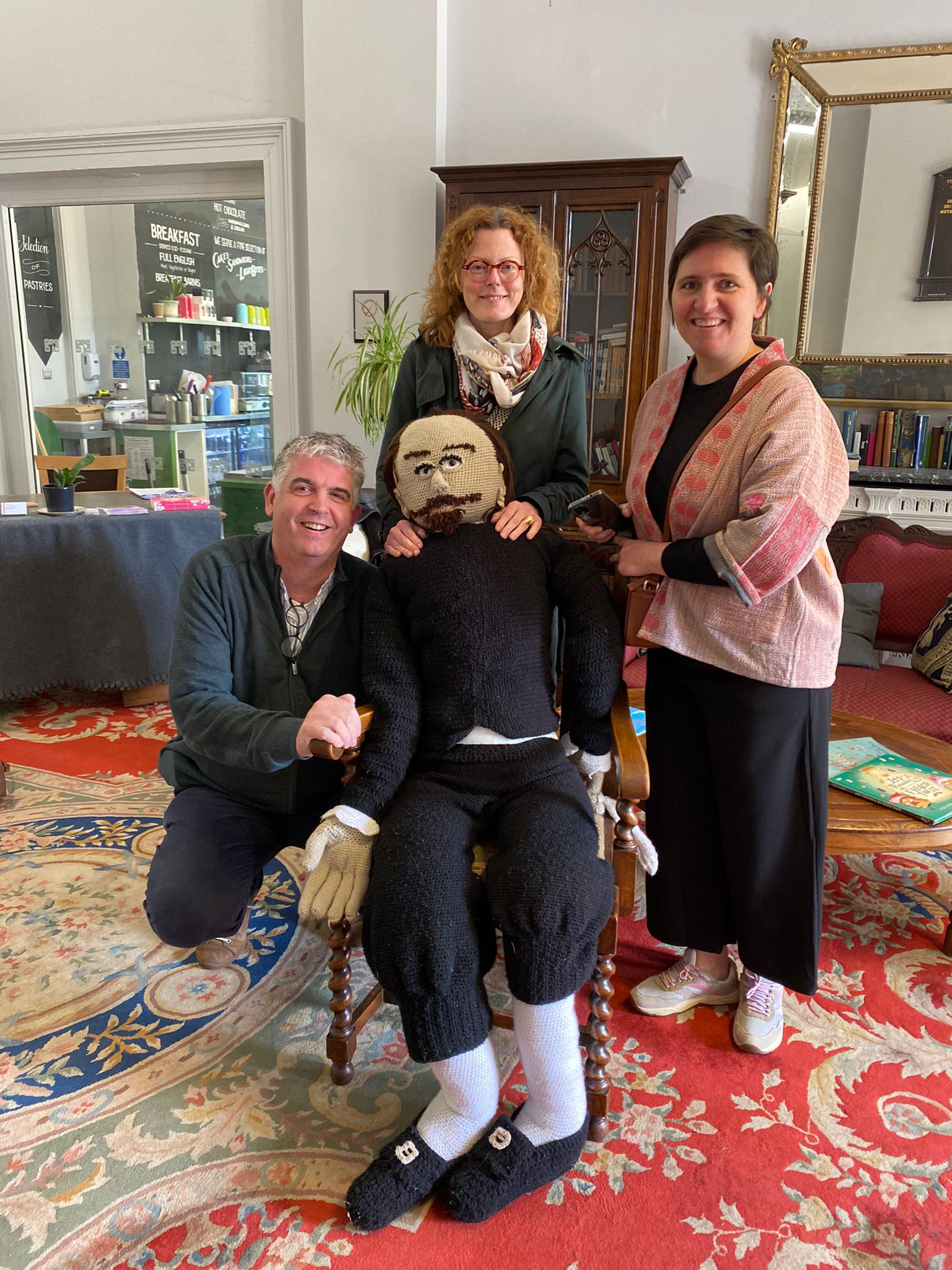
We often talk about ‘wow moments’ in Shared Reading groups - can you tell us about a particular time when you’ve experienced this and what the group were reading?
The example above definitely comes to mind – not only because of the woman’s reaction in that moment but also for what the volunteer said it taught him about loss, life and death, and being human.
I think this also shows why so many of our volunteers give so much more to Shared Reading than they’re originally asked to do. So many of them tell us that they learn so much from it themselves but also it’s about that feeling of connection and sense that we’re doing something meaningful.
What does the future hold for Het Lezerscollectief?
Our big challenge for the future is maintaining the heart of our social organisation so that we can keep on doing this good work for society while at the same time, investing in becoming a professional organisation.
We also have work to do in persuading those who commission Shared Reading that it’s a way of supporting health and wellbeing, rather than simply a cultural activity that promotes books and reading.
Share
Related Articles
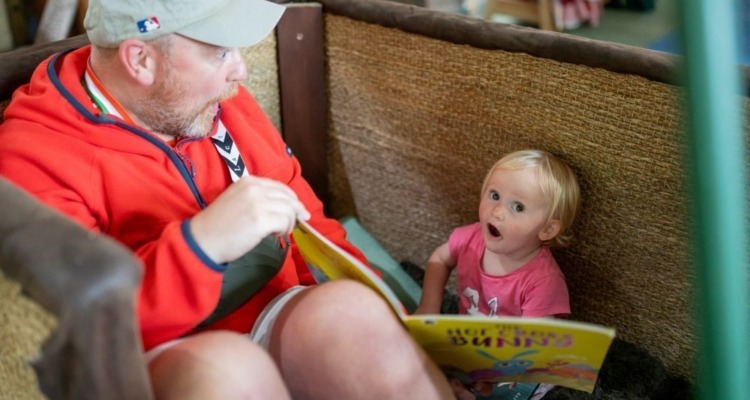
We cannot just tell parents to read more. To truly improve children’s futures through reading, we need to properly support the adults around them to do so.
Responding to the Department of Education's announcement that 2026 will be a Year of Reading, The Reader's Managing Director Jemma…

Shared Reading in Wirral Libraries: ‘As a kid people read stories to you but as an adult you lose that – and it’s a fantastic thing to do!’
Two Strategic Librarians for Wirral Libraries, Kathleen McKean and Diane Mitchell have been working in partnership with the UK’s largest…
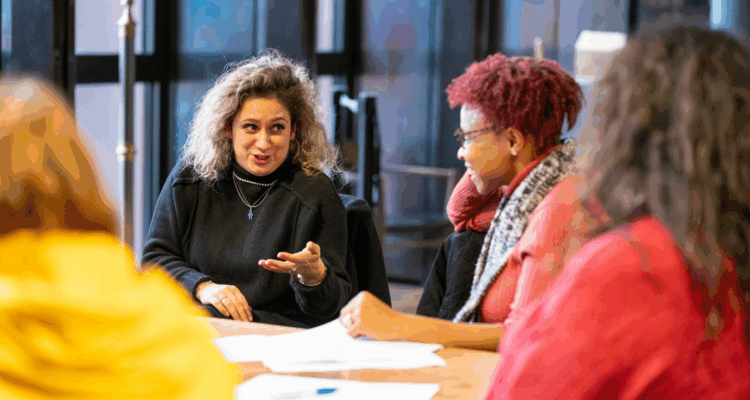
Pat: ‘You don’t need to be an academic – it’s about going on your gut feeling about a story or poem’
National charity The Reader runs two popular weekly 90-minute Shared Reading group at one of the UK’s most innovative libraries,…


